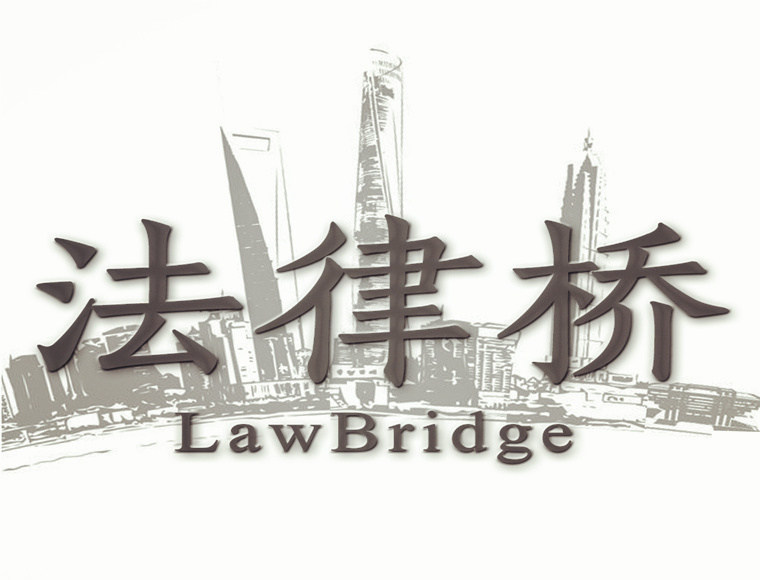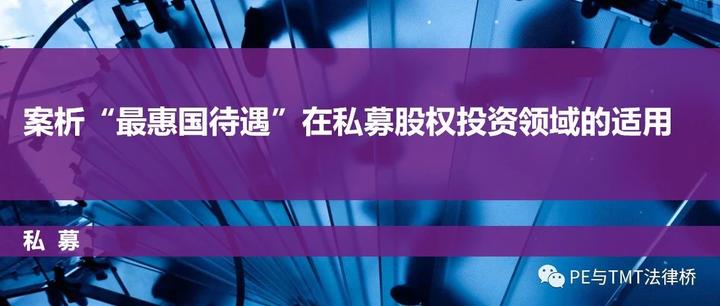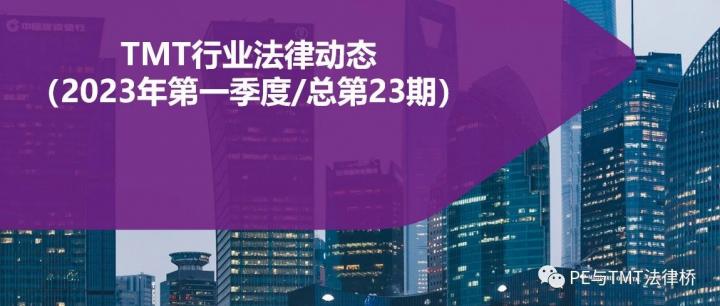Viewing the "Complete Agreement Clause" of an Equity Investment Agreement from an Arbitration Case

Preface
Different Types of "Entire Agreement Clauses"
(1) "Complete agreement terms" only involving this round of financing
1. Basic expression
This agreement constitutes the complete agreement reached by the parties on this transaction and supersedes any previous oral or written consultations, intentions, and agreements reached by the parties on this transaction.
2. Features
This is the basic version of "Complete Agreement Terms", which is relatively simple and has the following two characteristics:
(1) It is limited to various forms of oral or written communication between the parties to this round of financing transactions, and does not involve any oral or written communications or documents formed in previous rounds of financing transactions;
(2) It is a "one size fits all" replacement for and coverage of the Prior Consultation (as defined below). That is, any oral or written term sheet or letter of intent, memorandum, and any other form of document (hereinafter referred to as "prior negotiation") reached by the parties to the transaction at any stage before the signing of the final transaction agreement shall be replaced without exception immediately after the final transaction document takes effect, and the rights and obligations of the parties to the transaction shall be subject to and only in accordance with the agreement in the final transaction document. Once any dispute arises between the parties to the transaction, any prior application shall be excluded. consultation.
3. Applicable objects
From the characteristics of the basic version of the "Complete Agreement Clause", it can be seen that this clause is only applicable to the oral or written communication formed during the negotiation process of the same round of equity financing between the parties to the transaction, and does not involve other rounds of financing. According to our practical experience, when companies that have experienced multiple rounds of equity financing, when drafting subsequent rounds of financing agreements, their "complete agreement terms" usually involve the retention of relevant investor rights clauses or founding shareholder obligations under the previous round of financing agreements or adjust the problem. Therefore, we understand that this basic version of the terms is more suitable for start-up companies that have not conducted any equity financing before.
4. Drafting proposals
Since the terms of the basic version are only aimed at the communication content formed by the same round of equity financing, the possibility of conflicts or ambiguities is relatively small. However, we recommend that all parties to the transaction fully review the previous procedural documents (including but not limited to the "Confidentiality Agreement" signed at the initial stage of the negotiation, as well as the representations, guarantees and commitments of all parties) when drafting this version of the "Complete Agreement Terms", In order to ensure that the content of the final version of the investment agreement fully represents the true intentions of all parties regarding this round of equity financing transactions, it is strictly forbidden to directly engage in "one size fits all" and exclude content that is more in line with the opinions of all parties. For example, if the content of the previously signed "Confidentiality Agreement" is more thorough and detailed than the agreement in the final version of the investment agreement, the confidentiality matters should be excluded from the "Complete Agreement Terms", which can be expressed as "the parties concerned about this The confidentiality obligation of the transaction shall be subject to the "Confidentiality Agreement" previously signed by all parties," or the "Confidentiality Agreement" may be an attachment to the final version of the investment agreement. As for the representations, guarantees and promises made by all parties, if there are not many contents, they can be directly written into the text of the final version of the investment agreement. a large number of representations, warranties and commitments), and without modification, it can be used as an annex to the final version of the investment agreement.
(2) "Complete terms of agreement" involving the previous round of financing agreement
1. Basic expression
The previous round of transaction documents, this agreement and other transaction agreements to be signed under this agreement, the final agreement and its related appendices and schedules constitute the entire understanding and agreement between the parties on the subject matter of this agreement, and supersede all previous agreements on the subject matter of this agreement A written or oral understanding or agreement on a matter. The previous round of transaction documents will continue to be effective. Regarding the relevant rights and interests of investors under the previous round of transaction documents, if the final agreement is not explicitly deleted or revised, such rights and interests will continue to be valid; In case of ambiguity, conflict or inconsistency, the content of the final agreement shall prevail. The parties further clarified that Institution C will not raise objections to the principles established in this article in accordance with the relevant provisions of the most-favored-nation treatment under the Target Company's "A Round Investment Agreement".
2. Features
This is a relatively complete "complete agreement clause" involving multiple rounds of financing scenarios, with the following characteristics:
(1) The transaction documents of the previous round shall continue to be valid;
(2) The investor rights and interests clauses in the previous round of transaction documents continue to be effective (except for the rights and interests explicitly waived by the previous round of investors in the final agreement);
(3) Regarding the agreement on the same matter, if there is any inconsistency or conflict between the previous round of transaction documents and the final agreement, the final agreement shall prevail.
3. Applicable objects
As we all know, an excellent company is often the target of many capitals. It often goes through several rounds of equity financing in the process of its development and growth. In the process of each round of financing, different investors must have different interests. Therefore, , These investors often start a game on the financing transaction terms of the same round or different rounds of the target company. The result of the game is that the transaction documents of the subsequent round of financing will set up a more detailed "complete agreement clause", which stipulates the issue of "remaining" the investor's rights or the obligations of the founding shareholders under the previous round of financing agreement. That is to say, this improved version of the "Complete Agreement Terms" is applicable to companies that have gone through multiple rounds of equity financing, and each round of financing involves the introduction of new investors.
4. Drafting proposals
As mentioned above, the perfect version of the "Complete Agreement Clause" is the result of games between shareholders of companies that have experienced multiple rounds of equity financing. It is reflected in the final version of the investment agreement. There are two meanings here:
(1) Reflect the game results of the parties to the transaction in the final version of the investment agreement. This point is relatively easy to understand. You can refer to the basic expression and characteristics of the complete version of the "Complete Agreement Clause" introduced above, and draft targeted content in combination with the actual interests of the parties to the transaction.
(2) The game results reflected in the final version of the investment agreement should avoid ambiguity as much as possible. In commercial practice, it is not easy to achieve this. Take the "Complete Agreement Terms" involved in the arbitration case represented by Yang Chunbao's lawyer team mentioned in the preface of this article as an example. Disputes arose because of differences in the understanding of the "complete agreement clauses" stipulated in the investment agreement. The basic facts of the case are as follows: Institution C, the applicant for arbitration, is a round A investor of the target company, and natural person B (that is, the client of Lawyer Yang’s team) signed the "Round A Investment Agreement" including VAM clauses. Since then, the target company failed to complete the VAM quota as promised, but Institution C did not require natural person B to perform the repurchase obligation, but signed the "B round investment agreement" for the target company with the new investor, and in the "B round In the Investment Agreement, there are completely different provisions on the VAM indicators and obligors of the target company from the "A Round Investment Agreement" (natural person B is not the VAM obligor under the "B Round Investment Agreement"). In the end, when the target company failed to complete the VAM quota under the "Round B Investment Agreement", Institution C applied for arbitration, requiring natural person B to perform the repurchase obligation in accordance with the "A Round Investment Agreement". This case is a typical dispute over how to interpret the "complete agreement terms". Although the final version of the investment agreement has new arrangements for gambling matters (including but not limited to equity repurchases), the complete agreement terms do not specify the previous round of transactions. Whether or not the VAM arrangement in the document is still valid has led to different views between institution C and natural person B on whether B natural person should still undertake the VAM obligation, which in turn leads to disputes. Although we finally achieved a comprehensive victory on behalf of natural person B, it is not the best policy to "make up for a dead sheep" after all. If we can "prepare for a rainy day", we should draft as clear and complete "complete agreement clauses" as possible (for example: after acknowledging that the previous round of transaction documents will continue to be valid) At the same time, if it is clarified that the content of the equity repurchase and other matters should be subject to the final agreement), won’t it be possible to avoid the burden of litigation?

Epilogue
作者簡介
Lawyer Yang Chunbao
First class lawyer
Senior Partner of Dentons (Shanghai) Law Firm

The leader of the private equity and investment fund professional group and the TMT industry group leader of Beijing Dentons (Shanghai) Law Firm, the deputy director of the Dentons China Technology, Culture, Leisure and Entertainment Professional Committee, and a member of the Shanghai foreign-related legal talent pool. Bachelor of Laws from Fudan University (1992), Master of Laws from University of Technology Sydney (2001), Master of Laws from East China University of Political Science and Law (2001).
Lawyer Yang has been practicing for 27 years, and has long been engaged in private equity funds, investment and financing, and M&A legal services, covering TMT, big finance, big health, real estate and infrastructure, exhibition industry, manufacturing and other industries. Since 2004, he has been specially recommended or commented by The Legal 500 and Asia Law Profiles for many times. Since 2016, he has been continuously selected as one of the "100 outstanding lawyers in China" by the internationally renowned legal media China Business Law Journal, and won the "Leaders in Law - 2021 Global Awards" He has won the title of "China Company Law Expert of the Year" and has won the "China TMT Lawyer Award" and "China M&A Lawyer Award" from Lawyer Monthly and Finance Monthly for many times. He is qualified as an independent director of a listed company. He is a part-time professor of the Law School of East China University of Science and Technology, a part-time tutor of the Law School of Fudan University, a part-time postgraduate tutor of East China University of Political Science and Law, a lecturer of the private equity president class of Shanghai Jiaotong University, and a lecturer of the transnational management talent training class of the Shanghai Municipal Commission of Commerce. Published 16 monographs including "Practical Operation and Case Analysis of Enterprise Legal Risk Prevention and Control", "Winning Capital 2: Complete Operation Guide for the Company's Investment and Financing Model Process", "Practice of Risk Prevention and Control of Private Equity Investment Funds". Lawyer Yang's practice areas are: companies, investment mergers and acquisitions and private equity funds, capital markets, TMT, real estate and construction projects, as well as dispute resolution in the above fields.
Author
Attorney Sun Zhen
Partner of Dentons (Shanghai) Law Firm

Email: sun.zhen@dentons.cn
Before practicing law, Mr. Sun served as the global, Asia-Pacific or China region president or executive assistant to the vice president in Fortune 500 companies such as Watts, Ingersoll Rand and Alcatel-Lucent. Excellent bilingual communication and coordination skills in Chinese and English. Lawyer Sun published "Private Equity Investment Fund Risk Prevention and Control Operation Practice" and published dozens of articles in the fields of mergers and acquisitions, funds, and e-commerce. Lawyer Sun specializes in private equity investment, corporate mergers and acquisitions, e-commerce and labor legal affairs.
PE&TMTLawbridge

Presiding lawyer: Yang Chunbao, first-class lawyer
Contact number: 021-20283256 1390 182 6830
Business contact and submission email:
chambers.yang@dentons.cn
Address: Floor 6, Building 3, Corporate World, No. 168, Hubin Road, Shanghai























































First, please LoginComment After ~